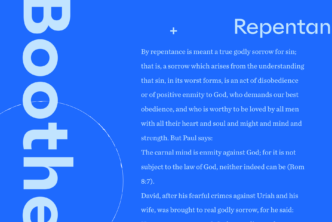By Walter C. Kaiser Jr.
Marriage comes as one of the gifts from our Creator’s hands to us mortals—we who are made in his image. The idea of one man and one woman being joined together in matrimony and in a covenant with each other, as well as simultaneously in covenant with God (Prov 2:17; Mal 2:14), is central to this teaching. It is one of the great foundational teachings of Scripture.
God presented it at the very beginning of his revelation in Scripture:
The man said, “This is now bone of my bones and flesh of my flesh; she shall be called ‘woman,’ for she was taken out of man.” That is why a man leaves his father and mother and is united to his wife, and they become one flesh. (Gen 2:23–24)
. . .
It should not be such a remarkable concept that God would devote a whole book of the Bible to this single theme of marital love and the joy and blessing that accompanies it. . . .
A king, a maiden, and a shepherd-boyfriend
A quick outline of the story in [the Song of Solomon] includes the following. In the small village of Shunem, a virtuous maiden lived with her two, or perhaps even more, brothers, and apparently her widowed mother (her father is not mentioned, so he might have been deceased). Her duty was to shepherd the family’s flock while also caring for their vineyards and a nut orchard. In the course of carrying out her duties one day, she met a shepherd at noon while they both were resting their flocks under the shade of a certain tree. This tree, then, became their trysting place, where mutual vows of fidelity appear to have been exchanged on that occasion, or at a later time when they once again met at the very same spot.
One spring day, as she was visiting her family’s nut orchard, quite unexpectedly came King Solomon’s palanquin borne on the shoulders of his retinue. When he observed this maiden, he was immediately struck by her unusual beauty and he determined to make her another member of his burgeoning harem. He had her brought to Jerusalem and handed over to the care of the palace women as he promised the maiden all sorts of gifts.
But her resolve was unshaken, even by this king with all his proffered splendor and wealth. She only wanted to be reunited with her boyfriend back home. Solomon eventually came to realize how utterly useless his attempted advances were as this girl’s virtue and constancy were unshaken. These virtues and the resolve that came with it finally made him yield in order to let her return home to her lover. The story ends with the lovers finally being reunited, and Solomon realizing that love cannot be bought or talked into, but is a gift from Yahweh on high.
. . .
Song of Solomon, more than a love poem
Solomon, for all his wisdom, fails miserably to understand how strong and abiding is the commitment of love between a man and a woman whom God has brought together. Solomon thinks he can easily woo this girl with the promise of riches, perfumes, and the opulence of the palace. But this woman places very little, if any, value on those things, especially in comparison to the gift of marital love that comes from God.
Here, then, is the point and the reason for including this song in Holy Scripture. The gift of love and affection for a mate of God’s choosing is his choice gift. The Song of Solomon is not a modern novel, nor is it a poem of love; instead, it is the Word of God proclaiming the beauty and purity of the marital experience in his master plan.
***
This post is adapted from Love by the Book: What the Song of Solomon Says about Sexuality, Romance, and the Beauty of Marriage by Walter C. Kaiser Jr., available now through Lexham Press.
The headings and title of this post are the additions of the editor. The author’s views do not necessarily represent those of Faithlife.
Related article
Related resources
- Understanding & Living With Sexual Integrity and Do This/Not That (Course)– Stephen Arterburn’s Every Man’s Battle and the Life Recovery Bible have helped countless people and families. These video courses bring much of the same encouragement.
- Biblical sexual ethics – In this six-hour course, Dr. David Instone-Brewer takes a closer look at how marriage, divorce, polygamy, homosexuality, and other topics are addressed in the Bible by unpacking the text of Scripture and the context in which that Scripture was written.
- Counseling Marriage & Family (Course) – If you’re a counselor, Dr. Dan Zink will take you through some of the toughest issues in marriage counseling and working with families.







